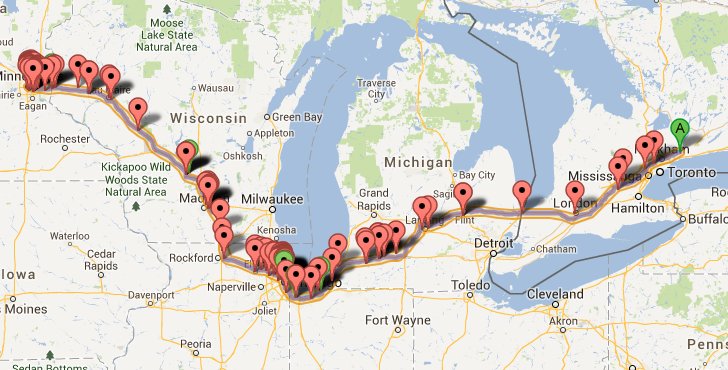The horrific railway crash near Santiago de Compostela that has taken at least 80 lives may have been caused by excessive speed, which this video certainly seems to confirm:
The BBC reports that the engineer may have admitted travelling at a speed more than twice what that curve was rated for:
At least 130 people were taken to hospital after the crash, and 95 are still being treated, health officials say.
The 32 seriously injured include children.
People from several nationalities are among the wounded, including five Americans and one Briton.
[…]
A spokeswoman for the Galicia Supreme Court said the driver, who was slightly injured in the crash, was under investigation.
Named by Spanish media as Francisco Jose Garzon Amo, he is expected to face questioning by police on Thursday.
It was unclear whether anyone else was subject to investigation.
The train’s carriages have been removed from the track by cranes and sent for analysis.
The president of railway firm Renfe, Julio Gomez Pomar, was quoted by El Mundo newspaper as saying the driver, who was aged 52, had 30 years of experience with the company and had been operating trains on the line for more than a year.
He said the train which derailed had no technical problems.
“The train had passed an inspection that same morning. Those trains are inspected every 7,500km… Its maintenance record was perfect,” he told Spanish radio.
But Mr Garzon, who was trapped in the cab after the accident, is quoted as saying moments after the crash that the train had taken the curve at 190 km/h (118mph) despite a speed limit on that section of 80km/h, unidentified investigation sources have told Spanish media.

Update: The Renfe high speed trains use a safety system known as ASFA (Anuncio de Senales y Frenado Automatico or signal notification and automatic braking). The BBC says railway safety experts are confounded that the engineer was even able to exceed the speed limit in the area of the crash:
Sim Harris from Rail News told the BBC he was baffled as to how this could have happened.
“Modern trains have got so many systems on board to stop ‘over speed’ of this extreme kind,” he said.
“The ability of the driver to break the rules in this way is very limited indeed by the on-board systems of the train.”
The most modern train safety systems use equipment on the track and within the driver’s cab to replace traditional signals and control the speed and movement of the train automatically.
With a system such as the European Train Control System (ETCS), a driver would not be able to break the speed limit.
While parts of Spain’s rail network — including a large section of the route the train had travelled from Madrid — do have the ETCS in operation, the curve where Wednesday’s derailment took place relies on a less sophisticated safety system known as ASFA.
ASFA — Anuncio de Senales y Frenado Automatico or signal notification and automatic braking — relies on a series of beacons to communicate with the driver’s cab — so does not have the constant communication of ETCS.
The system gives audio and visual warnings to the driver if speed limits are surpassed, and will step in and brake the train if there is no response from the cab.










